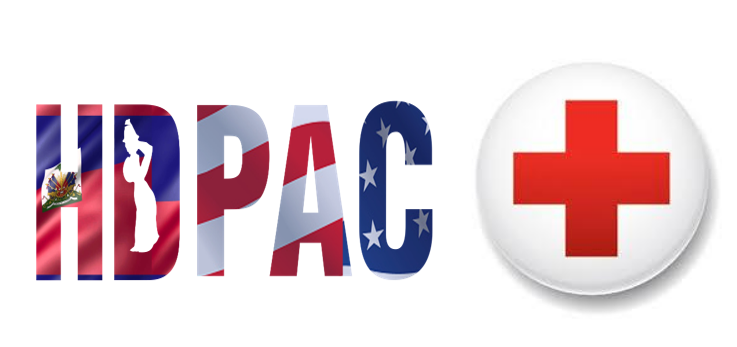|
Getting your Trinity Audio player ready...
|
BY: Raymond A. Joseph
THIS ARTICLE WAS ORIGINALLY PUBLISHED BY THE HOUSTON CHRONICLE
Truenewsblog – Is Haiti being punished for the “pact” reached with the devil to win its independence in 1804? Conservative icon Pat Robertson made this claim in January 2010 on Rachel Maddow’s show on MSNBC following the catastrophic earthquake of Jan. 12. Robertson was alluding to the Aug. 14, 1791, Voodoo ceremony at Cayman Woods, near Cap Français, then the capital of France in the New World.
With the assassination of President Jovenel Moïse, followed by a 7.2-magnitude earthquake on Aug. 14 stronger than the one that devastated Haiti in 2010, and finally a tropical storm that battered people already left without homes — well, you’d be forgiven for echoing Robertson’s thoughts.
Of course, God has not cursed Haitians for daring to overthrow those who enslaved us. God is not pro-slavery. To understand what has happened in the last month, we need current events in historical context.
As reported, in the early hours of July 7, Haiti’s president, Jovenel Moïse, was assassinated in the bedroom of his home in an exclusive neighborhood of Pétion Ville, the upscale suburb of Port-au-Prince. His wife Martine was wounded but survived. Among the 44 men jailed for their involvement in the president’s assassination, about 20 are “Colombian mercenaries,” some of whom received U.S. training while in the Colombian military.
Moïse’s own end brought full circle the mayhem that took place under his leadership. Last year, on Aug. 28, the president of the Port-au-Prince Bar Association, Monferrier Dorval, was assassinated, yards away from the president’s residence. Investigation of that spectacular murder was blocked, ostensibly on orders from the president.
Rather than throw our hands up over a curse, a finger can be pointed at Haiti’s own leaders and their misrule. But other powers play a role.
Despite Moïse’s many unconstitutional acts, he was supported internationally, especially by the United States, for his siding with Washington against undemocratic Nicolas Maduro of Venezuela. Forget that Moïse held no election since he assumed power in 2017. With Parliament’s term elapsed in January 2020, he had ruled by decree ever since, refusing to step down when his constitutional term ended last Feb. 7. Against all major institutions in Haiti, including constitutional experts, he held onto power with international support.
Haiti’s judiciary was under the president’s thumb. In violation of the constitution, he dismissed three justices of Haiti’s Supreme Court, making the institution dysfunctional. Other actions taken by the autocratic Moïse pale in comparison to his decision to replace Haiti’s main charter through referendum, which is expressly forbidden by the constitution he swore to uphold.
The new constitution would have reinforced the power of the president and absolved him, as well as his associates, from wrongdoing while in office. Moïse was about to reinstate a dictatorship reminiscent of François “Papa Doc” Duvalier, who assumed power in 1957 and who, on his deathbed, in 1971, anointed his 19-year-old son Jean-Claude “Baby Doc” president for life. That was cut short on Feb. 7, 1986, by a popular revolt which forced him into exile.
Moïse left behind a Haiti on the brink, which the international community, through the Core Group of Western diplomats in Port-au-Prince, is overseeing. Since no elections were held throughout Moïse’s tenure, there was no Parliament and local officials, such as mayors, were all appointed by the president. Thus, the international community, which paid little attention all along, has insisted on an election before the year’s end. The recent earthquake, which hit three of Haiti’s ten departments, as the mini-states are called, means the election won’t occur as planned.
Political turmoil isn’t unique to Haiti. Plenty of countries —, such as the U.S. on Jan. 6 of this year — have their strife, but what about multiple devastating natural disasters? Why Haiti?
In the aftermath of the most recent earthquake, rescue missions have been hindered due to gang activities in Fontamara and Martissant, suburbs south of Port-au-Prince, which have blocked traffic between Port-au-Prince and the departments in Haiti’s Greater South.
Then Hurricane Grace — ungraciously — passed through Haiti’s southern coast, only adding injury to misery for the thousands of people who were already homeless. Haiti, by virtue of sitting on a major fault line, has been susceptible to earthquakes and other “physical hazards” for centuries. However, it is the social processes that have shaped its history — sometimes outside of Haiti’s control — that have left Haitians particularly vulnerable to the effects of major disasters.
When Pat Roberson said Haiti was cursed in 2010, I was ambassador of Haiti to the U.S. I responded on the show right after him: “Some people don’t know about the history of their country. Otherwise, they would have known that the pact signed with the devil allowed the new American nation to double its landmass.” In 1803, in need of funds to fight the rebelling slaves of Haiti, Napoleon Bonaparte sold the Louisiana Territory for the equivalent of $15 million to the United States. That’s Haiti’s gift to America!
When Haiti achieved its independence in 1804, world powers at the time, enslavers all, wouldn’t accept a Negro state becoming the second free state in the Western Hemisphere after the U.S. They ganged up on Haiti, declaring an international embargo on the new state.
By 1825, with the support of the United States, France imposed an indemnity on Haiti, demanding reparations for lost property, including slaves. With an armada moored in the bay of Port-au-Prince, ready to turn the capital to ashes, Haitian President Jean-Pierre Boyer signed on the dotted line. The last dollar was paid in 1947 to the precursor of New York’s Citibank, which had bought the debt from France when the Americans occupied Haiti from 1915 to 1934. Haiti paid an estimated $21 billion in today’s dollars. In the process, Haiti’s economy was mortgaged soon after its independence, contributing to making the country the pariah state it is today.
Haitian corrupt leaders, in cahoots with some foreigners, also have much to do with the “curse” on our country. One example among many is the multi-billion heist of the PetroCaribe Fund, which was supplied by profits from the sale of Venezuelan petroleum products sold to Haiti at preferential rates.
Haiti can’t continue to harbor “saviors” who mismanaged the $13 billion pledged to “build Haiti back better” after the 2010 earthquake. They only contributed in giving Haiti the moniker of “the poorest country in the Western Hemisphere.”
What can American do to help Haiti? A first step is to understand the history that has gotten us to this point where the natural vulnerability of the island is exacerbated by interference, debt and corruption. On a practical level, a two-year transition government put together with support from civil society and major sectors of the country, such as the churches, should be envisaged to help reinstate state authority by cleaning up the country of gangs before free, fair and inclusive democratic elections can be held.
Then we can fully reject this idea of a curse and embrace the promise of freedom, still a mirage after more than two centuries of independence.
_ Raymond Joseph, together with his brother Leo, founded the first Haitian weekly newspaper abroad, the Haïti- Observateur, in 1971. It is based out of Queens, N.Y. For 14 years, he was a reporter at the Wall Street Journal in New York, and later a columnist at the New York Sun. He was the Haitian Ambassador to the United States from 2005 to 2010.




